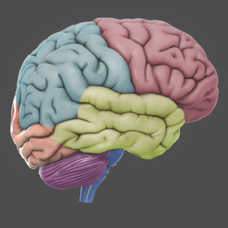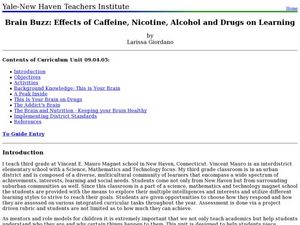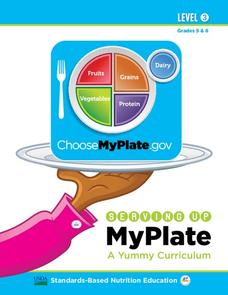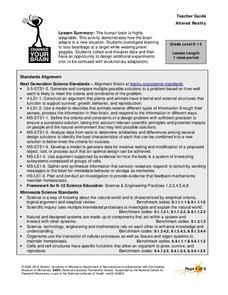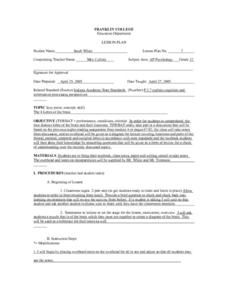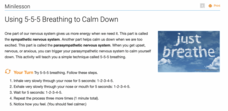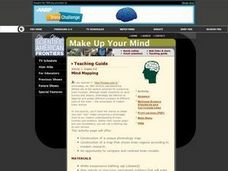Curated OER
Project-Based Learning & Leading Through the 16 Habits of Mind
Blending Costa & Kallick's 16 Habits of Mind, personality type, and project-based learning in your classroom.
Cold Spring Harbor Laboratory
3D Brain
Imagine being able to rotate the brain and view interior structures without dissection! This tool allows anatomy masters to do just that. They also learn about the associated functions, disorders, and symptoms of damage to each structure.
Brain Parade
See.Touch.Learn.
Here is a great app that has tons of potential in helping your child or student with severe to moderate autism, or other intellectual disability, learn words and concepts using research-based methods. Children with autism or PDD NOS have...
Open Colleges
Your Brain Map: Strategies for Accelerated Learning
The brain is a complex organ with many different structures and functions. An interactive diagram allows learners to explore the different structures while pop-ups describe their functions. Secondary interactives show the structures of...
Curated OER
The Human Brain's Capacity for Language
Incorporate this slide show into your lecture about speech, language, psychology, or physiology. Addressing the structure of the brain as well as handedness and aphasia, the presentation could fit the needs of many different lecturers....
Curated OER
Daily Lesson Plan for a Struggling Reader
Strategy-based programs that are executed with consistency are the best for achieving growth in any learner with a learning disability. Here is a seven-step lesson plan that is highly structured and is intended to help learners with...
PBS
Stories of Painkiller Addiction: The Brain on Autopilot
For some people, the force of addiction can be as biologically compelling as the drive for food or water. High schoolers watch a video segment about Ryan, a recovering addict, and learn more about how opioids and other drugs can affect...
Curated OER
Brain Buzz: Effects of Caffeine, Nicotine, Alcohol and Drugs on Learning
Young scholars understand how the brain functions and how they can promote a healthy lifestyle. In this health lesson plan students complete several activities including investigating how stimulates affect the brain.
University of Minnesota
Welcome To Your Senses
Sound, sight, taste, touch, and smell—oh the world of senses! What do these five senses have to do with the brain? The answer: everything. Explore how the brain sends and receives messages by having the class participate in several sense...
US Department of Agriculture
Serving Up My Plate
Within three nutrition-themed, inquiry-based learning opportunities, pupils take notice of their eating habits; delve deep into the five food groups, gain experience in planning meals, participate in a taste test, and explore ads from...
Curated OER
This Is Your Brain on Pot
Students explore the causes and effects of marijuana addiction and research how THC affects different areas of the brain. They synthesize their knowledge by creating print advertisements that inform teenagers about the physiologic danger...
Museum of Science
Slime
Let knowledge of polymers and slime ooze into one's brain. Scholars learn about polymers and cross-linking by conducting a fun hands-on activity. They create their own colorful slime by mixing a borax solution and a glue solution.
University of Minnesota
Altered Reality
Fascinate young life scientists by showing them how their brain learns. By using prism goggles while attempting to toss bean bags at a target, lab partners change their outlook on the world around them, producing amusing results....
Curated OER
Left Brain vs. Right Brain -- Which Side Are You On?
Students examine the different regions of the brain and what they are responsible for. They decide whether they are right or left- brain dominant based on their personalities.
Curated OER
The Four Lobes of the Brain
Twelfth graders are introduced to the four lobes of the brain and their functions. As a class, they participate in a discussion about an article they read earlier. They answer comprehension questions as a way to review the material.
Curated OER
The Man Who Mistook His Wife for a Hat
Four scenarios of unusual human behaviors are given to your psychology class. Based on their knowledge of brain anatomy and function, they consider what parts of the brain might be affected in order to result in the behaviors. This case...
Curated OER
Disorders of the Brain
Students, in groups, conduct research about a specific disorder of the brain, create a character study of a person with that brain disorder, and then present the information to the rest of the class.
Missouri Department of Elementary
Don’t Tease Me!
A whole-class discussion sheds light on school bullying and ways to prevent it. Scholars share a moment when they observed or experienced some sort of teasing. Pupils brainstorm ways such behavior can be stopped or prevented.
Royal Society of Chemistry
Acids and Salts
How well do your young chemists know their acid-base reactions? Reinforce neutralization reaction and problem-solving skills with a challenging interactive. Learners examine the reactants, then predict the outcome in a series of...
Thoughtful Learning
Using 5-5-5 Breathing to Calm Down
Scholars calm their minds and bodies with a 5-5-5 breathing exercise. Learners breathe in for five seconds, out for five seconds, then wait five seconds to start again. The exercise takes one minute to complete.
Cornell University
Shedding a "Little" Light on Cancer Surgery
Many types of cancer treatments now depend on nanotechnology—a big "little" discovery. Scholars begin by removing "malignant" tissue from simulated brains, one using fluorescent markers thanks to nanotechnology and one without. This...
Curated OER
Mind Mapping
Students explore the functions of the brain. They create their own "live" model comparing a phrenology chart to our modern understanding of brain function and anatomy. Students compare and contrast brain models.
Florida Department of Health
Understanding the Risk of Substance Abuse Unit
Teenage brains are different! Understanding that the teenage brain is still developing and thus more impacted by substance abuse is the key concept in a three-lesson high school health unit. Participants learn about how the brain and...
Curated OER
Daily Lesson Plan for the Struggling Writer and Speller
Special educators know that it isn't all about the lesson plan, but rather the strategies and practices you choose to use. Here are a set of research-based practices and tips you can use to inform your choices when teaching learners who...



